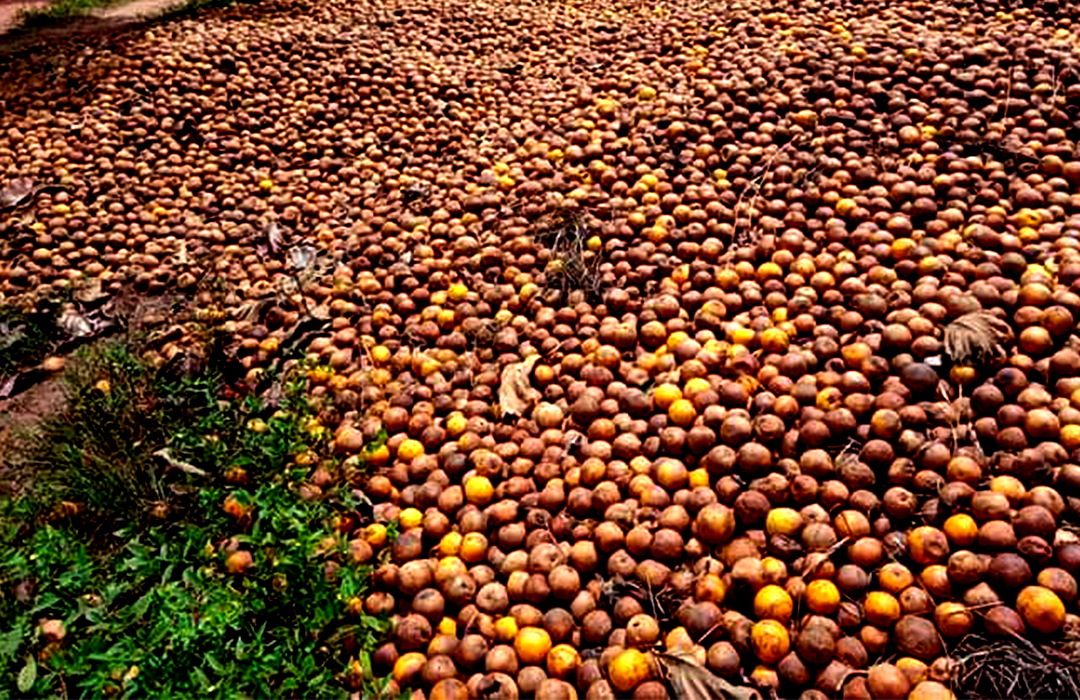
Plight Of Orange Farmers In Konshisha, Ushongo and Buruku: A Tale Of Declining Demand And Neglected Infrastructure
In the fertile lands of Benue State, the orange orchards of Konshisha, Ushongo, and Buruku have faced a shared challenge — a decline in the buying rate of their farm products, particularly oranges. This predicament has historically been attributed to the prevalence of illegal checkpoints and the deplorable roads leading to these local governments. While there have been positive strides, notably with the current governor’s efforts to eliminate many illegal checkpoints, additional measures are imperative. Furthermore, the removal of fuel subsidies has escalated transportation costs, posing an additional hurdle for these resilient farmers.
Declining Demand:
The distressing trend of declining demand for oranges in Konshisha, Ushongu, and Buruku persists, but there is hope on the horizon. Once highly sought after, these oranges faced challenges due to illegal checkpoints that demanded exorbitant taxes, hindering farmers’ profitability. However, recent initiatives by the current governor to eliminate many illegal checkpoints signify progress. Despite this, the vibrant orange market is still in recovery, with farmers working hard to find buyers for their produce amidst limited access to modern storage facilities and transportation networks.
Illegal Checkpoints: Progress and Further Action
The commendable efforts of the current governor in dismantling illegal checkpoints have alleviated the burden on farmers in Konshisha, Ushongu, and Buruku. This regulatory action is a crucial step towards fostering a more favourable environment for agriculture. However, sustained efforts are needed to ensure continued progress and to prevent the resurgence of such checkpoints. The government must remain vigilant, enforcing effective regulation and oversight to guarantee fair and transparent tax collection.
Neglected Infrastructure: Roads on the Mend
The neglected road infrastructure that once hindered the transportation of oranges is gradually being addressed. The removal of illegal checkpoints contributes to a smoother flow of goods, but more needs to be done. The government should accelerate its investments in improving the road networks connecting these local governments. This will not only facilitate the efficient transportation of produce but also stimulate economic growth by connecting farmers to markets and investors.
Impact of Fuel Price Hike:
While progress has been made, the recent removal of fuel subsidies has led to a spike in fuel and diesel prices. This has, in turn, increased transportation costs, placing an additional burden on farmers. The rising costs affect the entire supply chain, from farmers transporting their goods to traders and businesses operating in the region. To mitigate this challenge, the government should explore measures to stabilize fuel prices or provide targeted subsidies to support the transportation needs of farmers.
A Unified Call for Comprehensive Action:
The challenges faced by orange farmers in Konshisha, Ushongu, and Buruku call for comprehensive and sustained action. The positive steps taken by the current governor in eliminating illegal checkpoints should be acknowledged, but efforts must persist. Ongoing investments in infrastructure and targeted measures to address the impact of fuel price hikes are essential to fully revive the agricultural sector and promote sustainable growth.
Conclusively, the decline in demand for oranges from Konshisha, Ushongu, and Buruku local governments in Benue State is gradually seeing improvement, thanks to the removal of many illegal checkpoints. Benue State Governor, Rev. Fr. Dr. Hyacinth Iormem Alia’s initiatives have set a positive trajectory, but more actions are needed. Addressing the impact of the fuel price hike on transportation costs is crucial for the full recovery of the orange industry. By ensuring fair regulation, sustained infrastructure development, and measures to stabilize transportation costs, the government can foster an environment where farmers in these local governments can thrive. Let us collectively work towards a future where the oranges of Konshisha, Ushongu, and Buruku are not only renowned for their exceptional quality but also for the resilience and prosperity of the communities that cultivate them.
